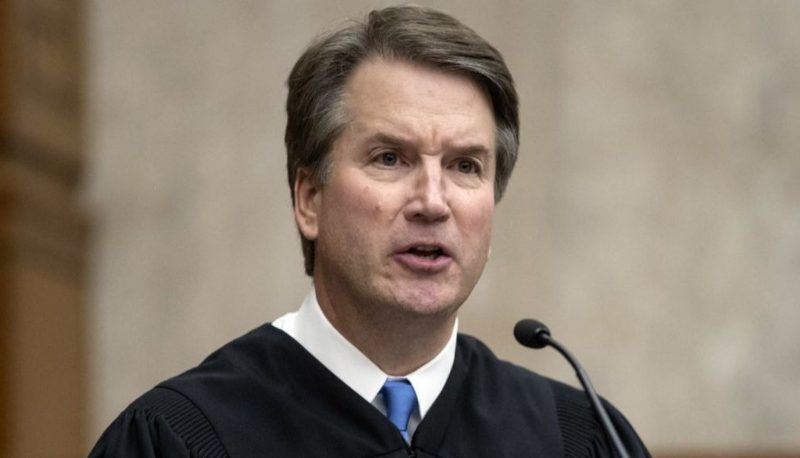Trump’s attorney and “fixer” Michael Cohen has pled guilty to numerous felonies and implicated Trump in criminal activity intended to affect the presidential election. His campaign manager Paul Manafort has been found guilty of numerous felonies connected to his efforts to conceal his work on behalf of close allies of Russia’s Vladimir Putin. There is increasing evidence that the Trump family and Trump campaign collaborated with Putin’s unlawful (and successful) effort to interfere with the presidential election. The independent counsel continues to investigate Trump’s obvious obstruction of justice, a serious felony.
During such a constitutional crisis, the Senate should not move forward on allowing the president to fill a vacancy on the Supreme Court, which will almost certainly hear his anticipated constitutional challenges to the special counsel’s efforts to get to the truth.
This is especially true for this nominee, Brett Kavanaugh, whose vision of the Constitution gives the president enormous authority, including absolute control over any action by any part of the executive branch—including the special counsel.
For instance, Kavanaugh believes that presidents under criminal investigation should be able to influence, defy, and even shut down investigations, immunizing themselves from criminal and political accountability for breaking the law.
- He stated that the unanimous Supreme Court decision requiring President Nixon to turn over the Watergate tapes in response to a special counsel subpoena may have been “wrongly decided— heresy though it is to say so.”
- At a Georgetown Law School symposium in 1998, he said that “a special prosecutor should be nominated by the President and confirmed by the Senate. Not by an isolated panel of judges. The prosecutor should be removable at will by the President.” And in 2016, he told fellow conservatives at an American Enterprise Institute conference that he would like to “put the final nail in the coffin” of the Supreme Court’s 1988 Morrison v. Olson decision upholding Congress’ enactment of an independent counsel law, even though the full DC Circuit continues to consider the case good law on Congress’ ability to constrain presidential power.
- At the 1998 symposium, he argued that “[i]f the President were the sole subject of a criminal investigation, I would say no one should be investigating that.” And in a 1998 Georgetown Law Journal article entitled “The President and the Independent Counsel,” he wrote that, although the Constitution does not say it explicitly, “the President can be indicted only after he leaves office voluntarily or is impeached by the House of Representatives and convicted and removed by the Senate.”
Kavanaugh believes the president can exercise immense powers without constitutional restraint.
- In a 2016 case called Bahlul v. United States, Kavanaugh wrote that the president can unilaterally designate someone arrested on U.S. soil as an “enemy combatant” and remove them from the federal judicial system and into the military commissions system. Although the case involved a non-citizen, other judges in that case observed that his reasoning could apply to citizens, as well.
- In a 2010 case called Al-Bihani v. Obama, he wrote that the president has the constitutional authority to detain noncitizen prisoners even without congressional authorization.
Kavanaugh interprets the Constitution to have created a presidency with enormous and frequently unchecked power. Although he is not known to have addressed the issue, he would likely not question Trump’s ability to pardon himself or others in order to cover up criminal acts.
Trump’s legal (and political) peril is inextricably connected to Brett Kavanaugh’s nomination. Letting Trump put him on the Supreme Court would be like letting a criminal defendant pick his own jury.
To paraphrase Trump: We need a total and complete shutdown of Kavanaugh’s confirmation process until our country’s senators can figure out what is going on.

